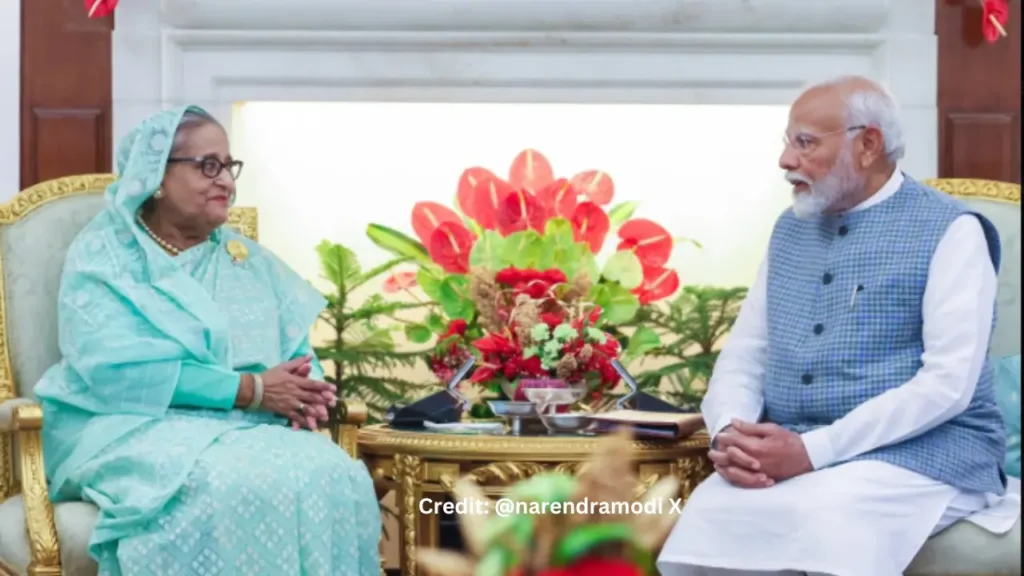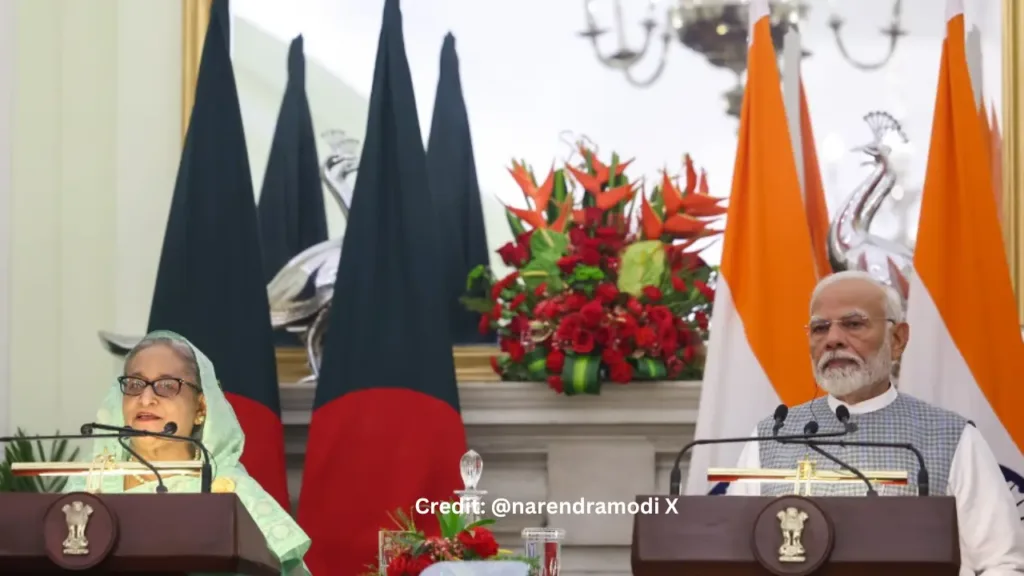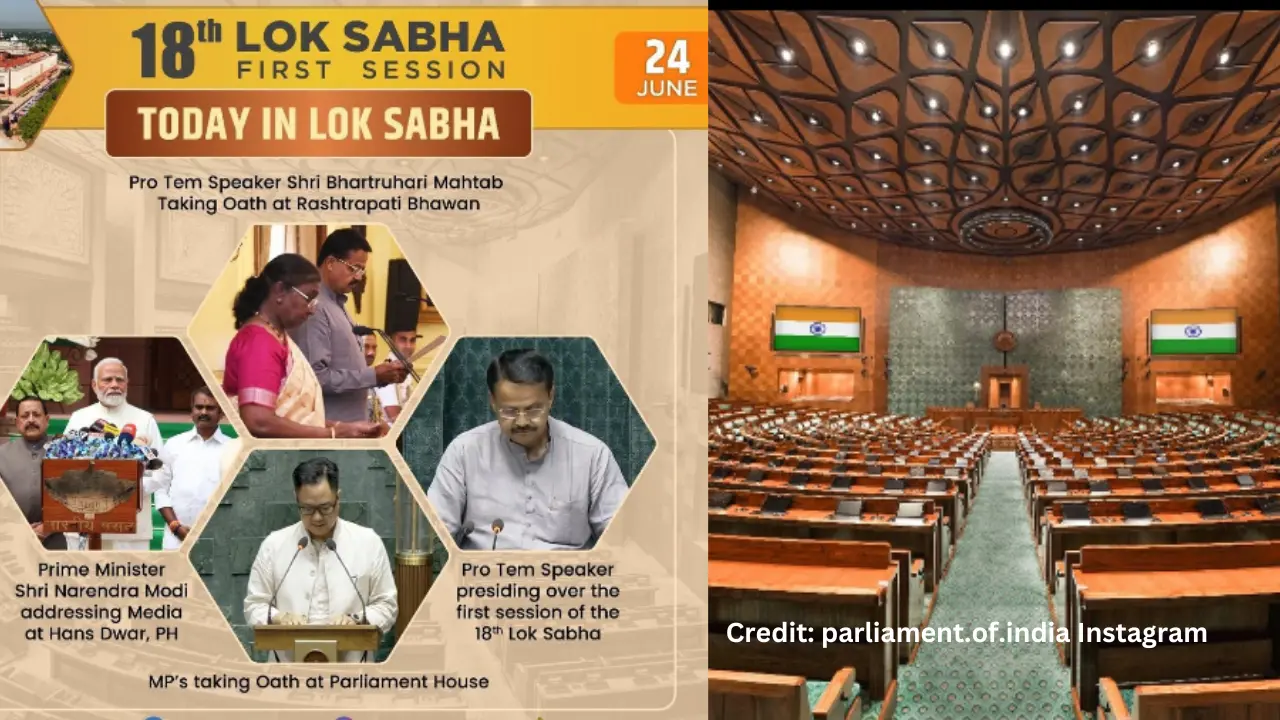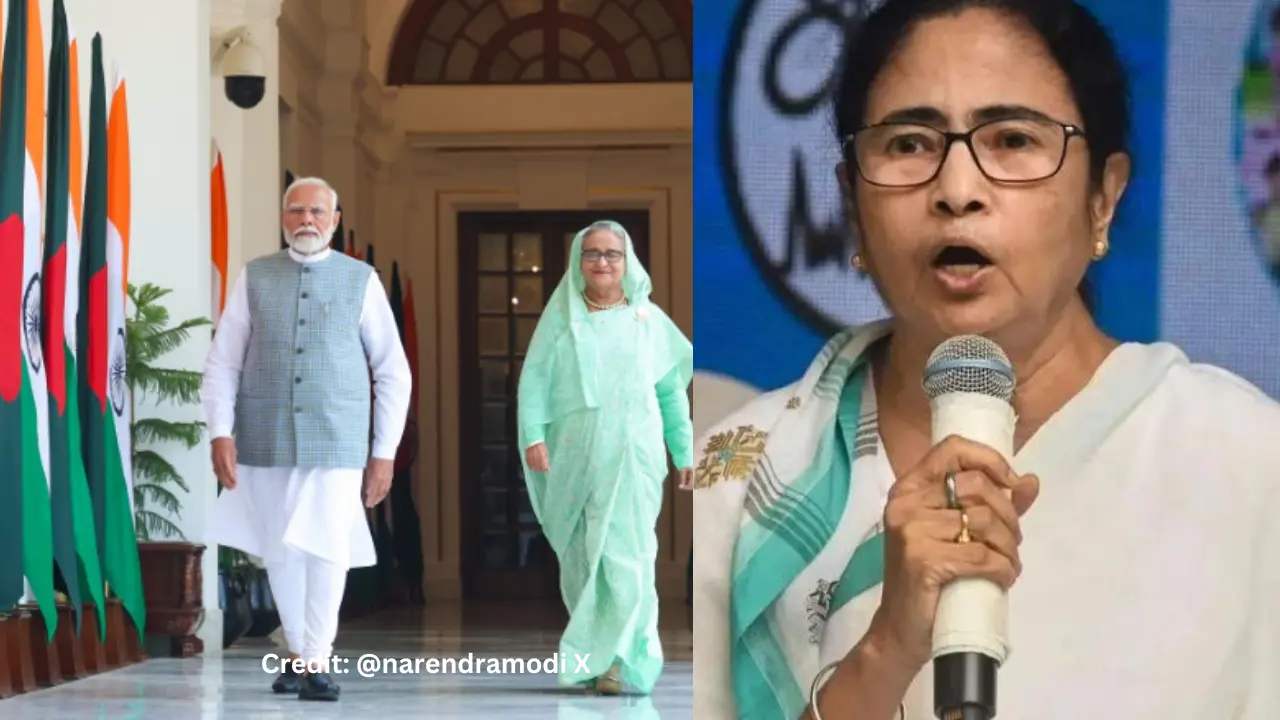
Recently, the discord has been reignited, this time it is highlighted a rift between the West Bengal chief minister Mamata Banerjee and Indian central government, and hence state relationship undergoing much strain. The sharing of transboundary river waters between India and Bangladesh, specifically Ganga and Teesta rivers has been a complex issue from very long time with diplomatic and regional political dynamics intertwined. The ongoing conflict has huge national and international ramifications for both domestic politics and international relations.

Centre Refutes Mamata Banerjee's 'Unilateral' Charge Over Ganga Water Treaty Move:
West Bengal CM #MamataBanerjee on June 24 wrote to PM #Narendra Modi saying no discussion on the Teesta river treaty should be taken up with Bangladesh without the involvement of the State Government, reports @shivsahays https://t.co/7UK7j4EXaX
— The Hindu (@the_hindu) June 24, 2024
Mamata Banerjee, West Bengal Chief Minister wrote to Prime Minister Narendra Modi stating that the union was acting unilaterally by initiating another round of talks for renewal of 1996 Ganga Treaty without involving West Bengal in any decision making process. This claim has been denied by NDA led union government who have insisted that there was prior consultation with her on the issue.
They recalled how on April this year the Joint Secretary (Works) Irrigation and Waterways Department conveyed their state’ s total requirement for the next thirty years from just downstream of Farakka Barrage.
After technical-level negotiations initiated between Prime Minister Modi and Bangladeshi PM Sheikh Hasina, it is likely that the Ganges Water Treaty expiring in 2026 will be extended. In a statement the Centre pointed out that on 24th July last year it had requested Bengal to nominate someone else for a committee reviewing its provisions. Accordingly, The Irrigation and Waterways Directorate recommended its Chief Engineer (Design and Research) as a member of this Committee.
However, Mamata Banerjee accused BJP of renewing Farakka Treaty without considering Bengal people’s livelihoods terming it as having ‘Bangla Birodhi’ mindset on the part of Center, in Howrah she raised the matter stressing treaty’s adverse effects on local communities.
The rift between the Government and Mamata Banerjee Over Bangladesh’s Teesta Water Talks:

The sharing of the Teesta Waters still remains a contentious issue in addition to the Ganga Water Treaty. Mamata Banerjee has never been for any agreement that she thinks can negatively affect West Bengal. She wrote to Prime Minister Modi protesting against the Centre’s unilateral discussions with Bangladesh about the Teesta water-sharing treaty. Banerjee pointed out how strongly it would upset the people of West Bengal, particularly those engaged in agriculture around the Teesta River.
Nevertheless, the national government insists that its talks with Bangladesh over Teesta had always involved consultations with the West Bengal authorities. This is because last July, it requested the Bengal administration to nominate an official who could serve under an internal review committee set up to examine the 1996 water treaty. In response, the state government selected its chief water engineer and made its demand for water available for the next thirty years in April.
During a recent visit to Delhi, Bangladesh Prime Minister Sheikh Hasina hold talks with Indian officials on the renewal of the Ganga Water Treaty as well as on sharing Teesta waters. However, these discussions lacked direct input from the West Bengal government and this has caused more controversy.
Mamata Banerjee has highlighted that the health of the Teesta River on the Indian side has deteriorated due to different factors such as Sikkim’s hydropower projects and deforestation at its origin. She believed that sharing of Teesta’s water would have severe consequences on the livelihoods of thousands in North Bengal. The chief engineer of the state has stated that by approaching Bangladesh for assistance in setting up projects on the Teesta, the Central Government was trying to introduce the former as a new messiah on the river.
Conclusion:
This ongoing confrontation between India and Bangladesh on Ganga and Teesta Rivers epitomizes larger national issues related to water diplomacy and federal governance in India. It calls for a fair and all-inclusive approach that considers every party’s interests.
Consequently, there is a need for the central government in securing both Bangladesh’s demands and addressing the concerns of West Bengal about these waters.
In balancing out these considerations through its approach, India can best ensure that it manages its most precious resource in a sustainable way that is equally fair to all its citizens both at home and overseas.
You may also Like:

Prime Minister Narendra Modi Calls for Responsible Opposition Ahead of 18th Lok Sabha Session

Nalanda University and Bihar Under The Leadership of 14th PM Narendra Modi






3 thoughts on “Centre and Mamata Banerjee Clash Over Bangladesh Ganga Water Treaty (1996)Talks on Ganga and Teesta Rivers”